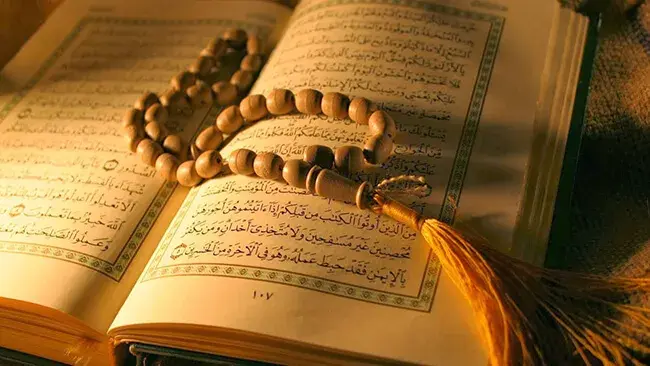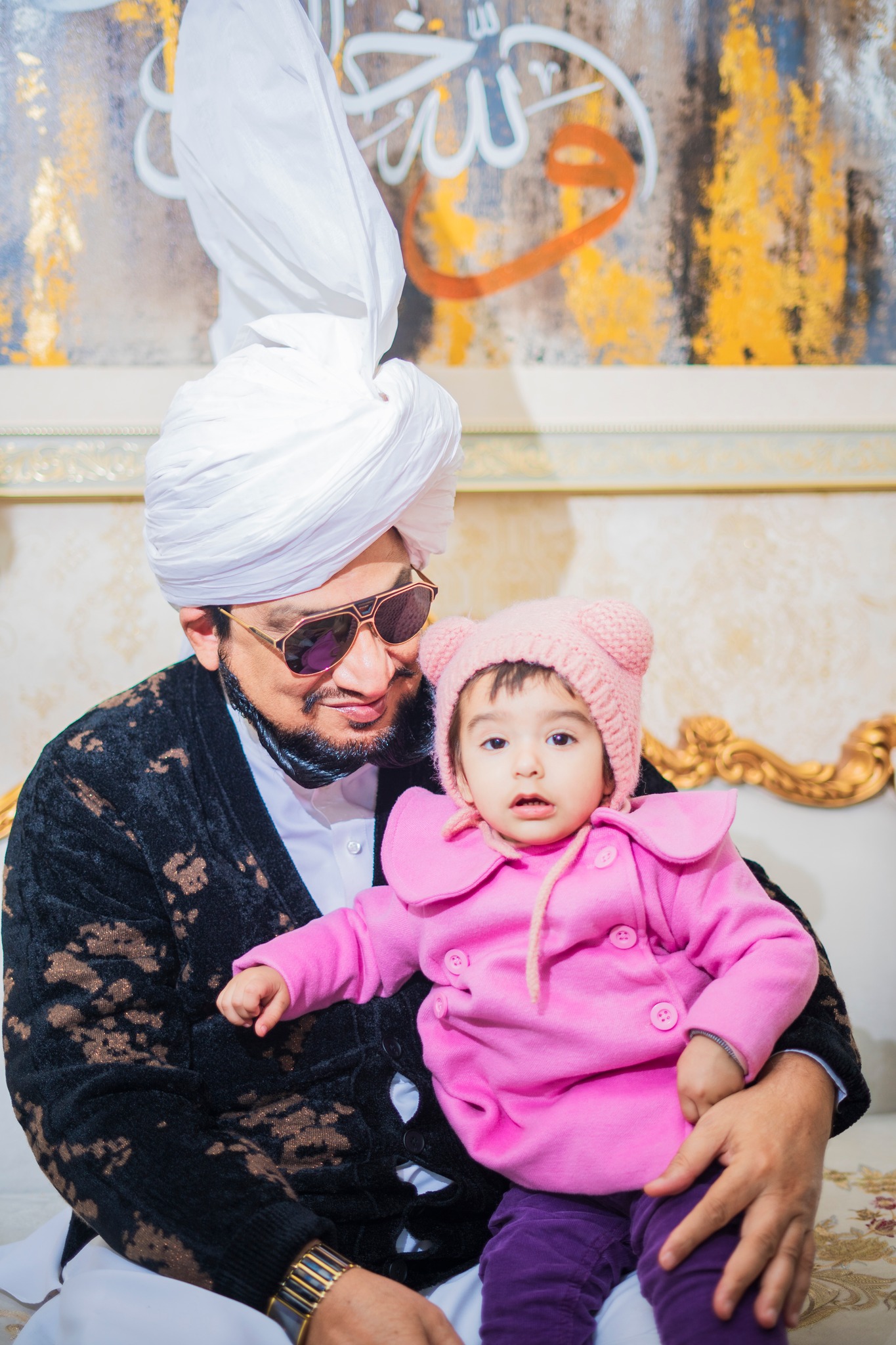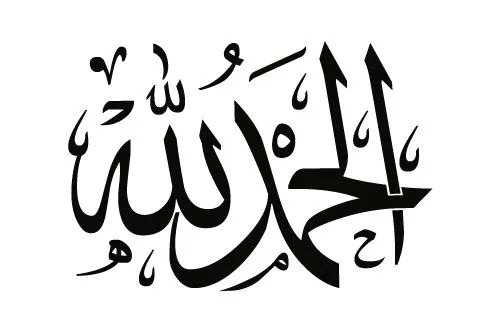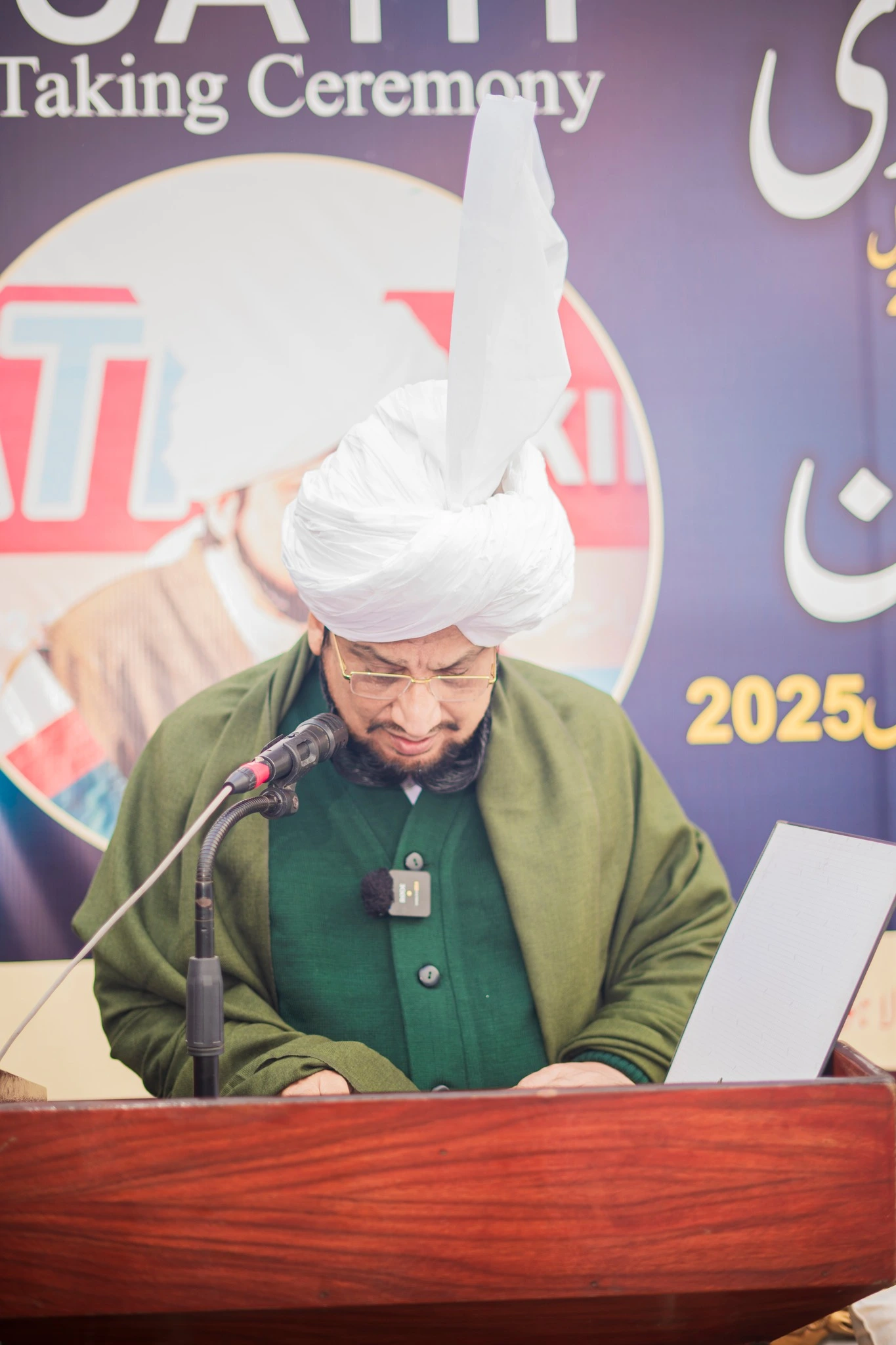The Power of Gratitude in Islam
Eternal praise and gratitude belongs to Allah, who is the Creator, Master, and Sustainer of the universe. When He bestows upon His servant, He does so without reminding them of His favor, and when He withholds, even in that, there is wisdom and goodness hidden.
It is therefore an absolute obligation upon the servant to regard everything that Allah has decreed in their destiny as a Divine blessing and express sincere gratitude for it, except for those things that lead to the spiritual blindness. Every decision of Allah is a blessing for His servant, whether he understands it immediately or over time. Even if it appears outwardly painful, it will ultimately unfold as a blessing.
Thus, a person should have an unwavering faith that Allah is their greatest well-wisher. When a person realizes that no one understands their well-being and benefit better than Allah, they have truly fulfilled the right of gratitude.
Gratitude Definition and Meaning
Ali ibn Abi Talib said:
Gratitude means using Allah’s blessings in accordance with His will.
(Nahj al- Balagha)
Gratitude is a combination of the unwavering faith in the heart, praise on the tongue, and obedience in action.
(Ihya al-Uloom)
Shah Syed Mohammad Zauqi:
True gratitude is a special state that arises in the seeker’s heart with joy and delight when they attribute the blessing to the Benefactor (Allah) and uses it according to His will.
(Sirr-e-Dilbaran)
A wise scholar described gratitude as follows:
Gratitude is that all the blessings fade from the view upon seeing the Bestower (Allah). (Awarif ul-Ma’arif)
فَکُلُوۡا مِمَّا رَزَقَکُمُ اللّٰہُ حَلٰلًا طَیِّبًا ۪ واشۡکُرُوۡا نِعۡمَتَ اللّٰہِ اِنۡ کُنۡتُمۡ اِیَّاہُ تَعۡبُدُوۡنَ ﴿۱۱۴﴾
Meaning: So always eat of that clean and lawful sustenance which Allah has given you and give thanks for the favor of Allah if it is indeed Him alone that you worship.(16:14)
At another point, He says:
وسَنَجۡزِی الشّٰکِرِیۡنَ ﴿۱۴۵﴾
Meaning: And soon shall We reward (affluently) those who are grateful. (3:145)
The Importance of Gratitude and Being Thankful
Prophet Mohammad (peace be upon him) would stand in prayer for so long that his feet (or shins) would swell. When he was asked about this, he replied, ‘Should I not be a grateful servant to Allah?
(Bukhari 1130)
Gratitude draws a person closer to Allah and becomes a means of their spiritual advancement.
(Daleel-ul-Arifeen)
The Holy Prophet (peace be upon him) said: “Praise is the cloak of the Most Merciful.” Allah revealed to the Prophet Ayub (Job): ‘In exchange for long supplications, I have accepted gratitude from My friends. Gratitude is the best of words. Through gratitude, I will grant them more and extend their period of seeing Me.’
True gratitude is to use the given blessings with a joyful heart in accordance with the will and pleasure of Allah. And if a blessing is not granted or is taken away, the heart should not feel any constriction or sorrow towards the Creator. Instead, one should become even more devoted and engaged in obedience with greater love.
A grateful person is one who remembers Allah’s blessings even in challenging times and expresses gratitude with patience.
(Kashf-ul-Mahjub)

Levels of Gratitude
Be thankful to Allah in every situation. You cannot even comprehend the blessings He has bestowed upon you, and what He can take back. If He gives you everything but takes away only your inner peace, what will you do?
Abdullah bin Masud said:
Gratitude is half of faith.
(Kimiya-e-Sa’adat)
There are three types of gratitude:
- Gratitude of the limbs (Shukr al-Jawarih)
- Gratitude through the tongue (Shukr bil-Lisan)
- Gratitude of the heart (Shukr bil-Qalb)
Gratitude of the Limbs
Allah created humans as the most honored of His creations. He blessed them with knowledge, intellect, awareness, understanding, and wisdom. He granted them complete and functional body parts and faculties so they could use these blessings to worship Him and seek His closeness. If a person reflects, they will realize that they cannot fully thank Allah for the creation of even a single eye.
A Reminder from the Quran and Hadith:
The physical faculties have a right over a person, and one should be mindful of fulfilling this right because, on the Day of Judgment, these faculties will testify either for or against them. Allah says in the Quran:
شَہِدَ عَلَیۡہِمۡ سَمۡعُہُمۡ واَبۡصَارُہُمۡ وَ جُلُوۡدُہُمۡ بِمَا کَانُوۡا یَعۡمَلُوۡنَ ﴿۲۰﴾
Meaning: Their ears, their eyes and their skins will bear witness against them concerning the works that they used to do. (41:20)
The Holy Prophet Mohammad (peace be upon him) said:
Allah is pleased with a person who praises Him after eating or drinking.
(Muslim 6932)
Whoever is treated well and responds by saying, ‘Jazak Allahu Khairan’ (May Allah reward you with goodness), has expressed the best form of gratitude. (Tirmidhi 2035)
Gratitude through the Tongue
لَئِنۡ شَکَرۡتُمۡ لَاَزِیۡدَنَّکُمۡ وَ لَئِنۡ کَفَرۡتُمۡ اِنَّ عَذَابِیۡ لَشَدِیۡدٌ ﴿۷﴾
Meaning: If you are thankful, I shall certainly increase (My blessings on) you, and if you are ungrateful, then My torment is surely severe. (14:7)
Gratitude of the heart
Divine Essence is present in everything in the universe and transcends the universe as well. However, the human heart (esoteric self) is such a place that it is vaster than the fourteen realms of the heavens and earth. Therefore, the Divine Essence manifests in the heart of a believer.
(Teachings and Quotes of Sultan-ul-Ashiqeen)
Sultan-ul-Ashiqeen further says:
People observe your deeds, but Allah observes your intentions.
(Teachings and Quotes of Sultan-ul-Ashiqeen)
ومَا بِکُمۡ مِّنۡ نِّعۡمَۃٍ فَمِنَ اللّٰہِ ﴿ۚ۵۳﴾
Meaning: And whatever blessing you have been provided with is from Allah alone. (16:53)
Gratitude of the heart is to remain content with Allah’s will, and this is the highest form of gratitude.
Prophet David (Dawud) once said in the court of Allah, “O Lord! How can I express gratitude to You, when even my gratitude is a blessing from You, for which gratitude is due to You” Allah replied, “O David! Now you have truly expressed gratitude to Me.” (Tasawwuf Ky Roshan Haqaiq)
The Ranks of the Grateful
According to the Saints, there are three levels of the grateful, categorized based on the way gratitude is expressed, sincerity, and the closeness to Allah:
- Gratitude of the Masses
- Gratitude of the Special Ones
- Gratitude of the Distinguished Ones
Gratitude of the Masses
This is the initial level of gratitude, where a person expresses gratefulness merely through verbal acknowledgment such as saying “Alhamdulillah” (praise be to Allah), when their basic needs are fulfilled. This type of gratitude is primarily self-centered and limited to personal benefits.
Gratitude of the Special Ones
The first to be called to enter Paradise will be those who praise and thank Allah in times of both hardship and ease.
(Mustadrak 1851)
Gratitude of the Distinguished Ones
- Gratitude is remembering the Bestower (Allah) rather than the blessing itself. (Tasawwuf Ky Roshan Haqaiq)
It is stated in Tafseer Ibn Kathir that the Holy Prophet said:
- Gratitude safeguards blessings and leads to their increase, while ingratitude causes blessings to diminish.
The attribute of a true believer is that when faced with hardship, instead of lamenting, they engage in greater praise and gratitude towards Allah and avoid ingratitude.
The Perfect Spiritual Guide, Sultan-ul-Ashiqeen says:
A thankful person does not need to pray for blessings as Allah has promised that whoever is grateful for His blessings, He increases those blessings. In other words, gratitude leads to an increase in blessings without even asking, whereas the prayers of an ungrateful person are not accepted.
(Teachings and Quotes of Sultan-ul-Ashiqeen)
Ibn Ata Allah al-Iskandari states:
Whoever did not express gratitude for blessings suffered their loss, and whoever showed gratitude bound them firmly to themselves.
(Tasawwuf Ky Roshan Haqaiq)
Factors Leading to Ingratitude
-
Association with Worldly People and Distance from the Truthful:
Proximity to worldly people and estrangement from people of truth weakens one’s faith, which is the root cause of ingratitude.
The company of worldly people fosters an environment where negativity, ingratitude, and hopelessness prevail. Those who immerse themselves in such company inevitably adopt these traits.
-
Lack of Awareness of Allah’s Blessings:
Allah’s countless blessings and mercy continuously shower upon humans, yet they fail to recognize them. They remain heedless and ungrateful, despite blessings like life, physical health, sustenance, etc.
-
Greed, Envy, and Forgetfulness of Current Blessings:
Greed and envy make a person blind to their own blessings, leaving them trapped in perpetual ingratitude. As the Universal Divine Man,
Someone asked a dervish, ‘Why is everyone unhappy in this world?’ The dervish smiled and replied, ‘Happiness is with everyone, but one person’s happiness becomes another’s pain.’
(Teachings and Quotes of Sultan-ul-Ashiqeen)
-
Haste and Impatience:
By nature, humans are hasty and impatient, which often leads to ingratitude. When faced with challenges or losses, they become anxious and develop an ungrateful attitude instead of showing patience and trust in Allah.
-
Feeling Inferior to Others
Considering oneself inferior to others in physical and mental abilities and complaining about it is also an act of ingratitude. Allah has created humans in the best form, as the Holy Quran says:
لَقَدۡ خَلَقۡنَا الۡاِنۡسَانَ فِیۡۤ اَحۡسَنِ تَقۡوِیۡمٍ ۫﴿۴﴾
Meaning: Indeed, We have created man in the best constitution (equipoised in the finest proportion).( (95:4
Gratitude leads to the Divine Closeness
- O believers! Fear Allah persistently and keep looking for means to (approach and get closer to) Him. (5:35)
- So, (O people,) if you do not know (yourselves), ask the people of remembrance. (21:7)
- He is the Most Kind. (O aspirant to His gnosis!) Ask of Him someone who has attained to His awareness. (25:59)
The above verses, along with numerous others in the Quran, highlight the necessity of a spiritual guide (Murshid). However, the Quran offers guidance only to those who are willing to understand and accept it. Such fortunate ones are blessed with Divine guidance; otherwise, Allah is self-sufficient and independent, as stated:
وَ مَنۡ جَاہَدَ فَاِنَّمَا یُجَاہِدُ لِنَفۡسِہٖ ؕ اِنَّ اللّٰہَ لَغَنِیٌّ عَنِ الۡعٰلَمِیۡنَ ﴿۶﴾
Meaning: And whoever strives hard (for the cause of truth) strives for his own (benefit). Surely, Allah is independent of (the obedience, submission and struggles) of all the worlds. (29:6)
The Fountain of Guidance in this Era
In this era, the perfect spiritual guide and the fountain of guidance is Sultan-ul-Ashiqeen Sultan Mohammad Najib-ur-Rehman.
Describing his virtues, spiritual ranks, and unparalleled status in Faqr (Sufism) is beyond words. For the discerning, a single spark suffices, while for the heedless, even the sun’s radiance appears dim. Sultan-ul-Ashiqeen is an ocean of Divine Love from which a single drop can transform a seeker, enabling them to attain annihilation in Allah (Fana Fillah) becoming immortal with Him in an instant through the invocation of Ism-e-Allah Zaat.
We humbly beseech Allah, through the intercession of the Holy Prophet and the People of the Cloak, to keep us perpetually benefiting from the perfect spiritual glance of Sultan-ul-Ashiqeen. Ameen.
Questions
Question: Why is gratitude important in Islam?
Ans: Gratitude is a fundamental part of Islam’s moral teachings. It not only instills a sense of servitude to the Creator but also fosters balance, compassion, and mutual brotherhood in society.
Aisha bint Abi Bakr narrated:
Prophet Mohammad (peace be upon him) would stand in prayer for so long that his feet (or shins) would swell. When he was asked about this, he replied, ‘Should I not be a grateful servant to Allah? (Bukhari 1130)
Gratitude is an expression of obedience and servitude to Allah, as well as the trait of the Prophets and Saints. It brings a person closer to Allah, lifting them out of despair, anxiety, and restlessness into comfort, joy, and the path of Divine closeness and gnosis where Allah will remain ever-present with them.
Moinuddin Chishti said:
Gratitude draws a person closer to Allah and becomes a means of their spiritual advancement. (Daleel-ul-Arifeen)
Question: What Allah says about gratitude?
Ans: Allah says in the Holy Quran:
فَکُلُوۡا مِمَّا رَزَقَکُمُ اللّٰہُ حَلٰلًا طَیِّبًا ۪ واشۡکُرُوۡا نِعۡمَتَ اللّٰہِ اِنۡ کُنۡتُمۡ اِیَّاہُ تَعۡبُدُوۡنَ ﴿۱۱۴﴾
Meaning: So always eat of that clean and lawful sustenance which Allah has given you and give thanks for the favor of Allah if it is indeed Him alone that you worship. (16:14)
At another point, He says:
وسَنَجۡزِی الشّٰکِرِیۡنَ ﴿۱۴۵﴾
Meaning: And soon shall We reward (affluently) those who are grateful.
Question: What is the true meaning of gratitude?
Ans: True gratitude is to acknowledge the Oneness of Allah, seeking His closeness and expressing thankfulness in one’s heart for all the blessings He has bestowed. The following quotes of the eminent personalities express the true meaning of gratitude
Ali ibn Abi Talib said:
Gratitude means using Allah’s blessings in accordance with His will. (Nahj al- Balagha)
Al-Ghazali stated:
Gratitude is a combination of the heart’s conviction, verbal praise, and obedience in action. (Ihya al-Uloom)
Shah Syed Mohammad Zauqi:
True gratitude is a special state that arises in the seeker’s heart with joy and delight when they attribute the blessing to the Benefactor (Allah) and use it according to His will. (Sirr-e-Dilbaran)
A wise scholar described gratitude as follows:
Gratitude is that all the blessings fade from the view upon seeing the Benefactor (Allah) (Awarif ul-Ma’arif)






Very enlightening
Very Beautiful ❤️ and Informative Article
Like this artical
Ali ibn Abi Talib said:
Gratitude means using Allah’s blessings in accordance with His will. (Nahj al- Balagha)
Informative article
Allah ka shukar hai ki Sultan ul Ashiqeen mujhe milen♥️
🌼🏵️
Great article
Gratitude is very important part of our religion
nice article
Gratitude is an expression of obedience and servitude to Allah, as well as the trait of the Prophets and Saints.
Ali ibn Abi Talib said:
Gratitude means using Allah’s blessings in accordance with His will.
(Nahj al- Balagha)
Great 👍
Moinuddin Chishti said:
Gratitude draws a person closer to Allah and becomes a means of their spiritual advancement. (Daleel-ul-Arifeen)
Nice
Great article
Gratitude is very important
Very interesting
Blog 👌
Amazing article